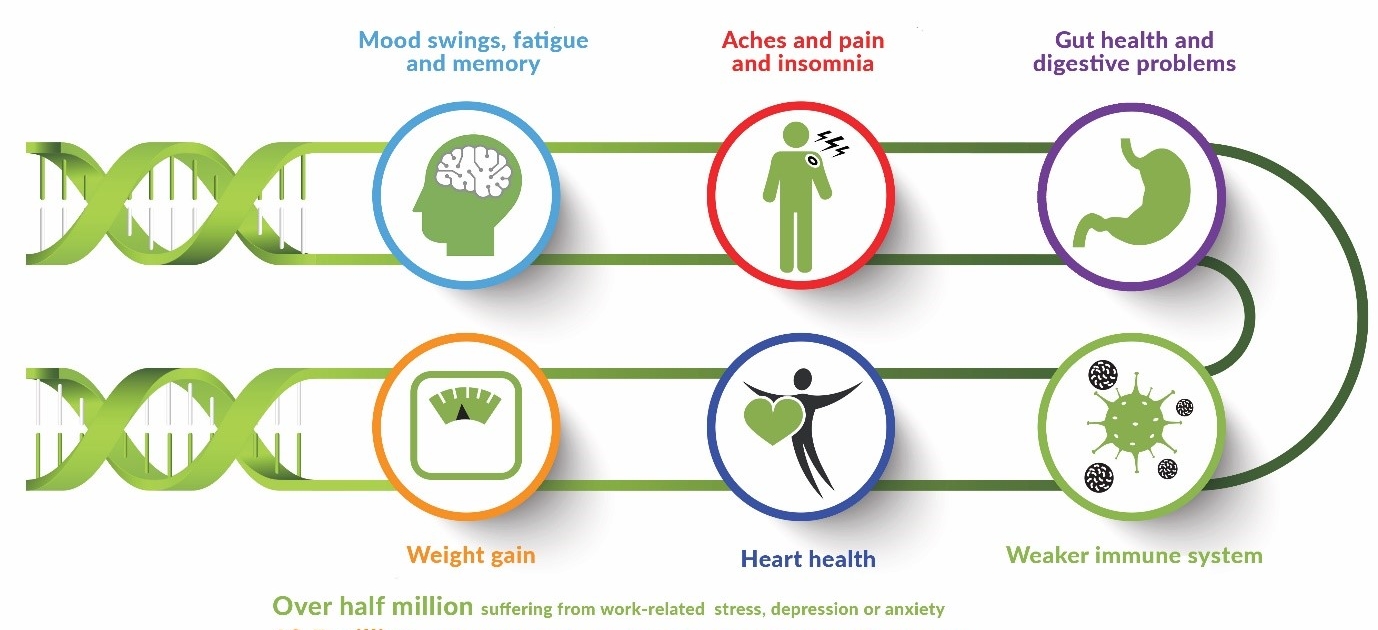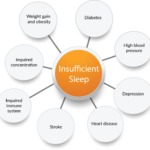How Stress Affects Your Health
How prolonged stress can affect your health
Stress is the feeling of being under too much mental or emotional pressure. It is a normal physical response to events that make you feel threatened or upset. When you sense danger the body’s defences kick into a rapid automatic process known as the fight or flight reaction, or the stress response. The stress response helps you rise to meet challenges. However, beyond a certain point, stress stops being helpful and starts causing major damage to your health, mood, productivity, relationships, and quality of life.
What happens when you experience stress?
When your body senses danger the adrenal glands release adrenaline and cortisol – hormones that provide you with the extra energy and strength required for either fight or flight. Ongoing stress means the cortisol levels are constantly elevated. Consequently, the adrenals produce too much cortisol and the effects of chronic overexposure to cortisol can be devastating.
Some consequences of prolonged cortisol elevations are abnormal blood sugar levels, loss of muscle mass, unhealthy sleeping patterns and increase fat accumulation, especially in the stomach area and around the internal organs. For example, when the cortisol is unbalanced, sleep patterns can be affected. Excess cortisol keeps us awake which leads to further excess cortisol secretion the next day resulting in food cravings, and consequent weight gain. This is a vicious stress cycle.
How does stress affect your digestion?
Stress also impacts digestion and the gut may need additional support in the form of a digestive enzyme. Good stomach acid is also required to stimulate absorption of essential vitamins and minerals. Stress switches off stomach acid due to the fight or flight reaction!
How can you manage stress?
Ensure that you are managing stress. If you’re stressed, whether by your job or by something more personal, the first step to feeling better is to identify the cause.
Some ways to destress are:
• Get active – Exercise helps reduce some of the emotional intensity you’re experiencing by clearing your thoughts.
• Have some ‘me’ time – Take some time to socialise, relax and just chill out away from the stressful environment.
• Avoid unhealthy habits – Don’t rely on alcohol, smoking and caffeine as your ways of coping as they will only help you temporarily and you will then return to your stressful environment afterwards and consequently, will probably feel worse.
• Work smarter – Prioritise your work instead of trying to do everything at once. Concentrate on the tasks that are more important first and leave the least important until last.
• Meditate – Try to meditate for a few minutes a day to help ease anxiety.
• Breathing Techniques – Take a five-minute break and concentrate on your breathing. Try breathing in through your nose for 4 seconds, hold your breath for 7 seconds and exhale through the mouth for 8 seconds.
• Look after your gut – Stress also impacts your digestion so a digestive enzyme may be a help during periods of stress.



